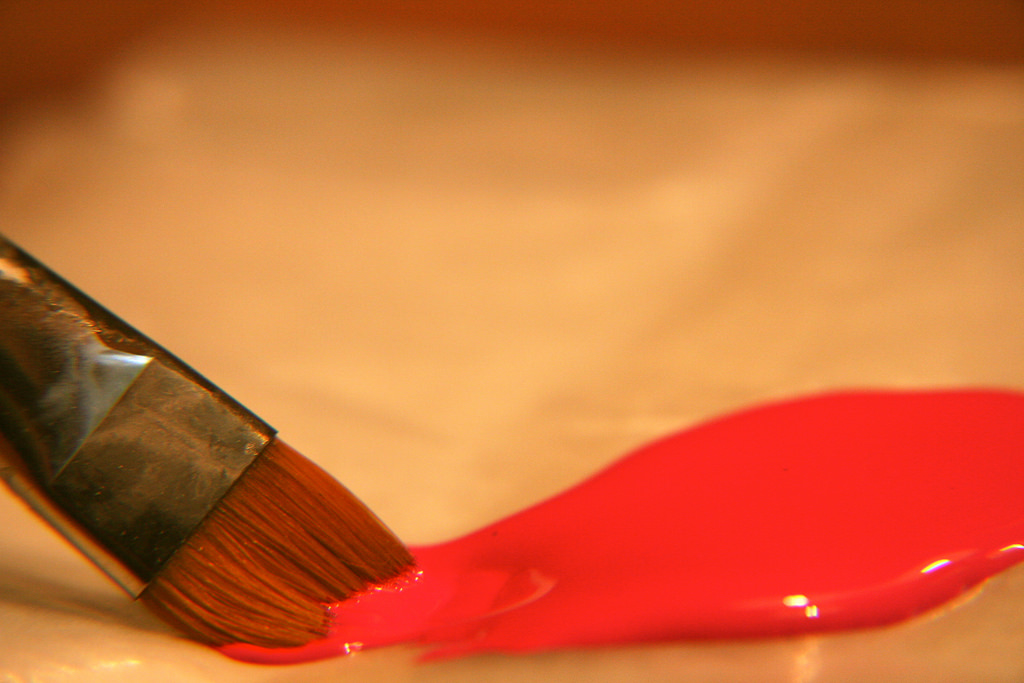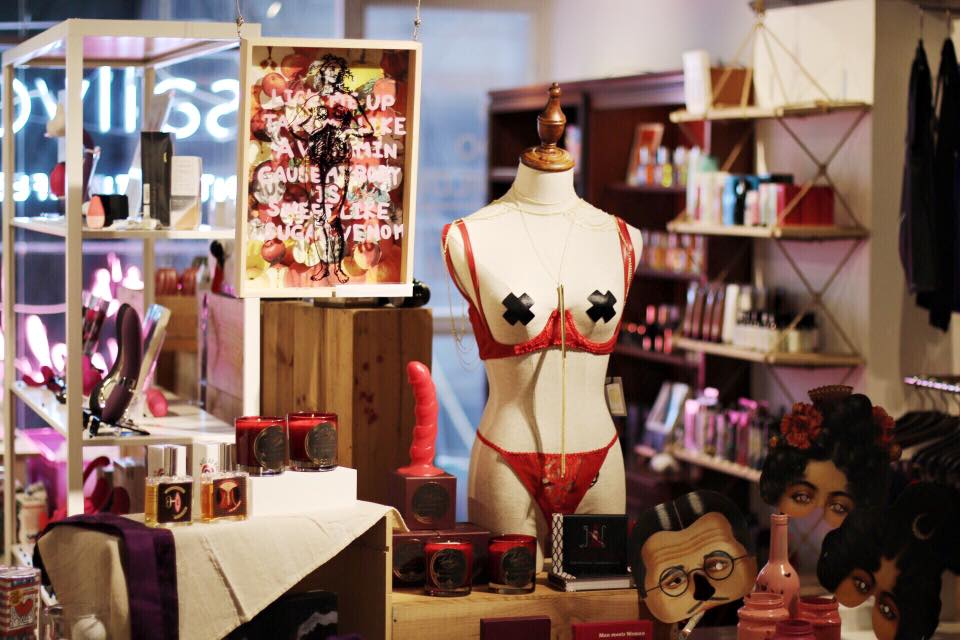“That’s disgusting! Don’t you know how to take care of yourself?” This is how Miki So remembers getting told off by the school nurse in secondary school, after an accident during her period that left a bright red stain on the back of her blindingly white uniform. “I’m sorry,” she recalls mumbling in reply. “I won’t do it again.”

Recounting the incident years later, So, now aged 24, is clearly still affected by the event. “I was really embarrassed to have the stain seen by my male classmates,” she says. The shocked look in her eyes softens. “That nurse made me feel so guilty about something I had no control over.”
Sadly, experiences like these are still common for girls in Hong Kong, where menstruation is clouded with shame and guilt. But MenstruAction, a social media project founded by Joyce Fung, is working to promote more open attitudes about menstruation, and encourage conversation and education.
In traditional Chinese culture, periods are an extremely taboo subject. People believe that the period weakens female bodies, as it disrupts the yin-yang balance in the body.
In addition, menstrual blood is considered the same as an unborn fetus, and therefore is linked to bad luck, danger and death. Therefore, there are many restrictions on women in their periods.
For important events, such as Chinese New Year, weddings, and funerals, they are not allowed to participate in the preparations and festivities, and in everyday life they are not allowed to engage in sexual intercourse or do laundry.
These antiquated and frankly ridiculous practices may seem out of place in modern, bustling Hong Kong, but in most Chinese families some menstrual taboos continue.
The family of Joyce Fung, a 22-year-old university student, abides by such rules. In her family, menstruating women are not allowed to visit their ancestors’ graves, and in fact are not even allowed to walk near the shrine in the house.
“As a kid, I simply accepted it, but when I grew up, I started to question this rule,” she says, “Why are girls with healthy, functional bodies considered dirtier than sweaty boys?”
Through conducting research for MenstruAction, she discovered more liberal attitudes towards menstruation, which not only promoted period pride, but also encouraged the use of eco-friendly sanitary products, such as reusable cloth pads.

When Fung first came across videos and articles promoting cloth pads, she wasn’t exactly accepting. “Honestly, my first thought was that it was gross,” she says, with a grimace. “I couldn’t stomach the idea of having bloody pads in my bag.”
However, Fung started reading more about the subject, and realized that cloth pads were a more health-conscious product than tampons, due to the absence of bleach and chemical dyes. Finally, she took the plunge and bought one six months ago.
To her surprise, she found these patterned and multicoloured cloth pads more comfortable to use. And since she had to wash and dry the pads each time, it also forced her to become more familiar with her body.
As part of her work for MenstruAction, Fung has been sharing her experiences with cloth pads with her family and friends. She says that her peers are a lot more accepting of alternative methods, whereas members of the older generation, like her mother, still find it difficult to accept.
With a wry grin, Fung tells me that to this day, her mom still forbids her to put the pads in the laundry, even after she’s hand-washed them thoroughly. “I tried to challenge her beliefs, and asked if clothes with nosebleed stains are allowed,” she says with a shrug. “She said nosebleeds are okay, so I guess to her, menstrual blood is especially gross.”
What started out as a school assignment has turned into a passion for Fung. Even though she will graduate soon, she hopes to continue working on MenstruAction. “A lot of people don’t realize that menstruation is a sign of a healthy female body, and should be admired,” she says. “Through this page, I have managed to spread this message, and I hope to continue doing so.”
So, on the other hand, works full time to promote menstrual positivity. She works at Sally Coco, an intimate lifestyle shop, with a focus on female empowerment. Apart from encouraging women to express their sexuality, the shop also spreads menstrual awareness through the sale of menstrual cups.

Like cloth pads, menstrual cups are a lot better for the body and the environment, as it is a reusable cup that is free from artificial bleach and dyes. In fact, as most cups are made of medical-grade silicone, they can be used for five to ten years, and are therefore more economical. Unlike cloth pads however, menstrual cups are more difficult to accept, as they must be inserted into the vagina, and are therefore seen to be ‘invasive’.
As part of her job, So and other employees are encouraged to use menstrual cups. After getting used to it, So calls the cup “life-changing”. To her, periods used to be a giant hassle that had to be dealt with each month, but now, with the cup, periods are something that she looks forward to.
With a laugh, she explains that because menstrual cups collect the blood, you can monitor your menstrual health by looking at the volume, and check for abnormalities. “I feel like my freedom has been returned to me!”, she says, gesturing at the little pink cup in her lap. “I can swim, cycle, go on vacation without worrying about being disgusting or having to buy pads. It’s the best thing that I’ve ever come across.”
In the 18 months that Sally Coco has been selling menstrual cups, approximately 2,000 have been sold. Since the cup is not a product that requires regular replacement, Sally Coco does not actually profit much from menstrual cups.
However, So explains that it represents female empowerment, and is therefore in line with the store’s ethos. Next to her, the other employees in the store nod emphatically. “To provide more choices means giving women more freedom to choose,” she says, “and therefore more power over their bodies.”

According to So, there have been customers ranging in age from 20 to 40, but there has been one common trait – a glaringly obvious lack of biological knowledge.
“I remember sex education in secondary school being quite terrible,” says So. “So I can’t really blame them.” Menstruation fell under the umbrella of sex education, so – with some embarrassment – teachers would rush through the topic, and therefore failed to explain the biology behind menstruation thoroughly.
The usual questions customers ask So are: Isn’t it too big? What if it doesn’t come out? Will it stretch out my vagina? As a result, with the sale of each cup, So spends about an hour giving the customer a condensed sex talk; she explains the biology of the female body, with the help of the detailed 3D figure on her desk, and soothes any worries. Working there, she has been desensitized to the questions, but to her, it highlights the inadequacies of the Hong Kong sex education system.
She recounts a funny experience, of a 40-year-old mother who came into the shop with questions about the menstrual cup. “She asked me if she had to take it out to pee.” So rolls her eyes with a sigh. “This woman had two children, and she still had to ask me this question. Can you believe that?”
Support HKFP | Policies & Ethics | Error/typo? | Contact Us | Newsletter | Transparency & Annual Report | Apps
Help safeguard press freedom & keep HKFP free for all readers by supporting our team

LATEST FROM HKFP
HKFP has an impartial stance, transparent funding, and balanced coverage guided by an Ethics Code and Corrections Policy.
Support press freedom & help us surpass 1,000 monthly Patrons: 100% independent, governed by an ethics code & not-for-profit.










